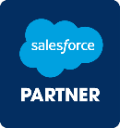Salesforce Statistics: Revenue, Market Share, Customers, Employees, Acquisitions & More
The most detailed salesforce statistics for 2025: market growth, ROI benchmarks, AI adoption, CRM dominance, customer ba...
Top 13 AI Lead Generation Tools for Modern Sales Teams (2026)
Looking for better leads in 2026? Compare the 13 best AI lead generation tools, their pros & cons, pricing, and top use ...
12 Best AI Sales Prospecting Tools: Best Practices + Use Cases
Learn how AI is transforming sales prospecting with smarter automation, predictive insights, and top 2026 tools to find ...
Best AI for Sales Calls Tools in 2026: How Voice AI and Conversation Intelligence Are Changing Sales
Discover the best Gong alternative tools for 2026. Compare top AI platforms that analyze sales calls, coach reps, and he...
12 Best AI CRM Software for 2026: Features & Real World Use Cases
See how AI for CRM automates data entry, boosts accuracy, and helps teams close deals faster. Compare top AI for CRM sof...
12 Best AI Outbound Sales Tools in 2026 + Strategies & Real Results
Discover how AI outbound sales tools automate outreach, personalize engagement, and boost pipeline growth. Compare top p...
13 Best AI Sales Forecasting Tools for 2026 to Predict Revenue Accurately
Get valuable insights on the top AI sales forecasting tools of 2026 that help sales teams predict revenue, reduce pipeli...
11 Best Sales Prospecting Tools To Find & Close More Deals
Compare the best sales prospecting tools for 2026. Explore top AI sales prospecting tools, pricing, pros & cons, and fin...
The Complete Guide to Conversational Intelligence for Sales Teams (2026)
Learn what conversational intelligence is, how it works, and how sales teams use it to coach reps, improve win rates, an...
AI SDR (AI Sales Development Representative): What It Is + How to Choose the Best Tools in 2026
Learn the benefits, core features, and how to choose the right AI SDR tools for your team, including top use cases and i...

.png?width=1268&height=1772&name=Sidebar-C%20(1).png)







.jpg?width=397&height=223&name=sales-automation-tools-adult-analysis-chart%20(1).jpg)


